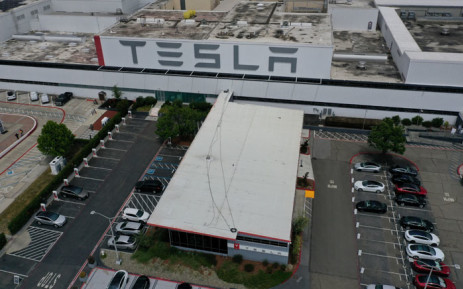Jury orders Tesla to pay more than $130 million in discrimination suit
Tesla’s work environment has previously come under scrutiny over allegations of a workplace discrimination, labor rights violations and poor treatment of workers during the coronavirus pandemic.

A jury on Monday ordered Tesla to pay nearly $137 million in damages in a case that alleged an employee encountered racist abuse, discrimination and harassment at the company’s plant in Fremont, Calif.
Owen Diaz, an elevator operator who worked for the company between June 2015 and May 2016, sued Tesla, alleging a hostile work environment and racial harassment, and said “daily racist epithets” such as the n-word were used in the factory, where his son, Demetric, also worked. The initial suit by Diaz, who is Black, alleged that workers encountered a scene “straight from the Jim Crow era,” where workers were subjected to frequent racist harassment and supervisors took no action.
“Tesla’s progressive image was a facade papering over its regressive, demeaning treatment of African-American employees,” the suit said.
Attorney Lawrence A. Organ of the California Civil Rights Law Group confirmed the verdict Monday, saying the jury awarded $6.9 million in damages for emotional distress and $130 million in punitive damages.
Tesla is likely to appeal the ruling. A message left with an attorney for the company, Tracey Kennedy of the Los Angeles-based firm Sheppard Mullin, was not immediately returned.
According to court filings, Tesla fiercely defended itself against the allegations, moving to strike the testimony of an expert witness and articulating its stance that Diaz was not technically employed by the company. Diaz, Tesla argued, “failed to provide the jury with evidence conclusively demonstrating that Tesla subjected Plaintiff to race discrimination.”
“Without such evidence, the jurors must answer no to the verdict form question asking whether Plaintiff was subjected to a racially hostile work environment by Tesla,” it said.
The company argued that even if the allegations were true — an argument it made as a hypothetical — Diaz could not prove he was subjected to a “race discrimination violation” by Tesla.
“Plaintiff has not presented any evidence of a contractual relationship between him and Tesla,” the company argued. “Plaintiff testified that he never got any written document from Tesla saying that he was a Tesla employee at any point in time.”
Diaz’s lawsuit was a hostile work environment and racial harassment case brought under the Civil Rights Act of 1866, with its relevant provisions on contractual relationships and the privileges of a contract, according to Organ. The defendants in the case included Tesla and several staffing corporations that sent workers to client sites. Attorneys for Tesla had attempted to argue that Diaz was not an employee of Tesla, but rather someone who had been paired with a job in its facilities. Organ said Diaz was working at Tesla, using equipment from
the company and taking direction from its workers, who determined his hours and rate of pay.
“We’re just gratified that the jury saw the truth and they awarded an amount that hopefully will push Tesla to correct what people testified about in terms of this widespread racist conduct,” Organ said. “It’s gratifying to know that a jury’s willing to hold Tesla accountable, one of the world’s largest, richest corporations finally is told, ‘You cant let this kind of thing happen at your factory.’”
Tesla’s work environment has previously come under scrutiny over allegations of a workplace discrimination, labor rights violations and poor treatment of workers during the coronavirus pandemic.


